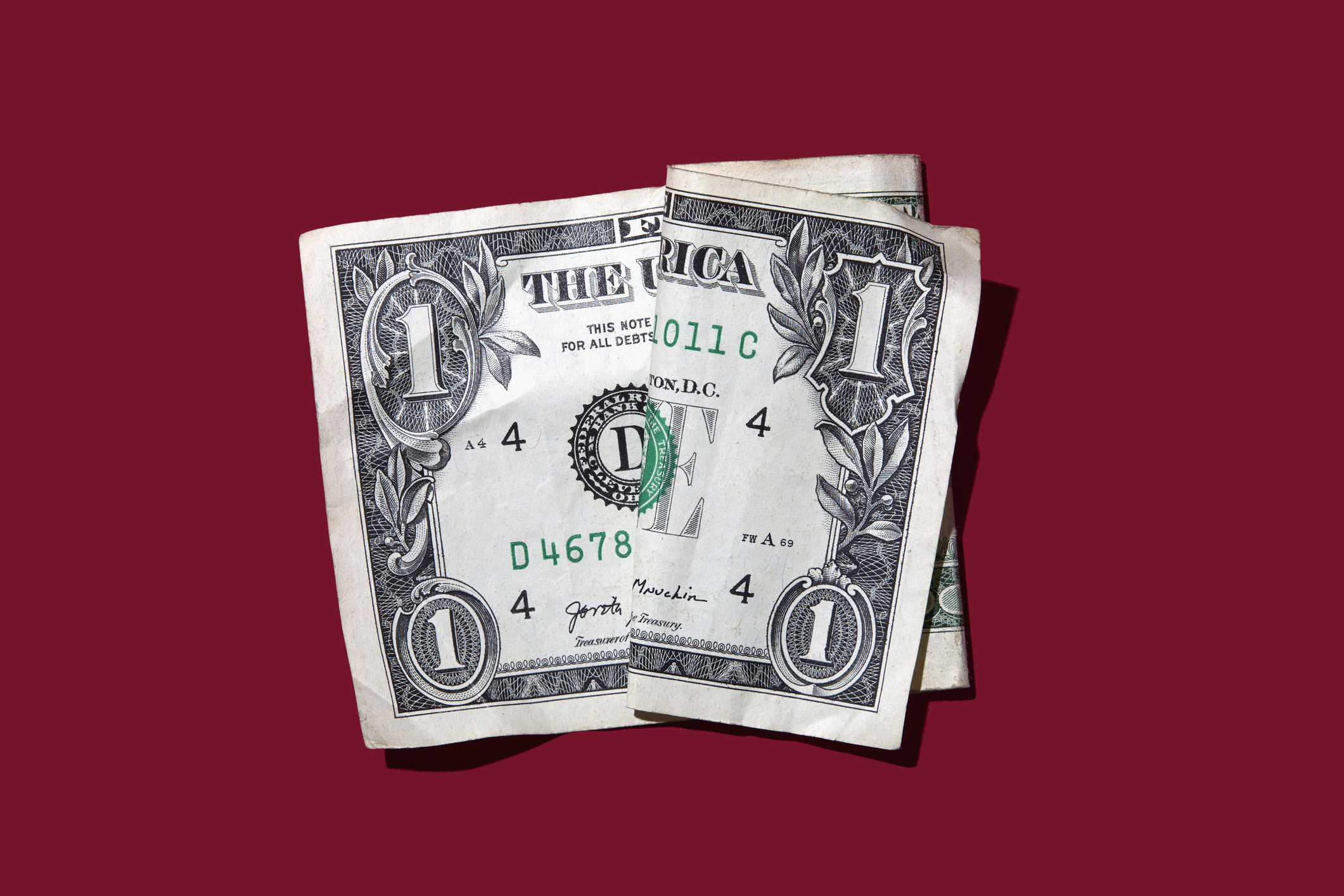The GOP Wants Your Child Enrolled in a Trump Account for Savings
The "kids Trump account" is growing in popularity among supporters. Here's what to know.


Profit and prosper with the best of Kiplinger's advice on investing, taxes, retirement, personal finance and much more. Delivered daily. Enter your email in the box and click Sign Me Up.
You are now subscribed
Your newsletter sign-up was successful
Want to add more newsletters?
Saving for a child’s future is an important part of every parent’s financial plan, but for many, the task can be daunting.
According to a recent LendingTree study*, raising a child to adulthood costs around $300,000. This total excludes college costs, job training, or future expenses your kid might need.
That's where Trump Accounts enter the fray.
From just $107.88 $24.99 for Kiplinger Personal Finance
Become a smarter, better informed investor. Subscribe from just $107.88 $24.99, plus get up to 4 Special Issues

Sign up for Kiplinger’s Free Newsletters
Profit and prosper with the best of expert advice on investing, taxes, retirement, personal finance and more - straight to your e-mail.
Profit and prosper with the best of expert advice - straight to your e-mail.
Introduced in the 2025 Trump/GOP tax and spending bill, so-called Trump Accounts will allow parents, relatives, and others to contribute up to $5,000 annually for a child’s future educational, homeownership, and entrepreneurial expenses.
The federal government will also seed this tax-advantaged account with $1,000.
The savings then grow tax-deferred (more on that below) until the child reaches 18. At that point, there could be tens of thousands of invested dollars for your child’s use.
Sen. Ted Cruz (R-Texas), who initially proposed the savings account initiative, told Semafor, “There are many Americans who don’t own stocks or bonds, are not invested in the market, and may not feel particularly invested in the American free enterprise system. [Trump Accounts] will give everyone a stake.”
If the savings account idea sounds familiar, that’s because it is. Democrats have proposed "baby bonds" in the past, which would also offer $1,000 seed money to eligible children, but failed to gain bipartisan support.
How is a Trump savings account any different? Should you open one in 2026?
Read on.
*Note: LendingTree researchers used various data sources, incorporating multiple expenses related to rent, food, health insurance, etc., to calculate the cost of raising a child in a two-income household.
Related: How to Claim Your Trump Account $1,000 Match
Trump kids account for newborns
Under the Trump tax bill, the GOP created a provision for Trump Accounts applicable to kids under age 18.
Overseen by the Department of the Treasury, these savings accounts are touted by supporters as a new way to help pay for higher education, homeownership, and any entrepreneurship expenses that account holders might incur.
Parents of eligible children can already begin the process of opening an account when they file their 2026 federal income taxes.
The sign-up process for a Trump Account starts by using Form 4547 during tax filing. After receiving the application, the U.S. Treasury Department will provide further instructions on activating the Trump Account in May 2026. (However, funding the accounts won't be open until at least July 5, 2026, per the official Trump account website.)
And, according to the IRS, "The funds in Trump Accounts must be invested in certain mutual funds or exchange-traded funds that track the S&P 500 or another index of primarily American equities."
Who is eligible for Trump Accounts for kids?
To be eligible for the proposed Trump Account, qualifying children will need to be:
- Under 18 years old
- U.S. citizen
- Have a Social Security number (SSN) with at least one parent with a valid SSN (or individual taxpayer identification number)
How to contribute to a Trump child savings account
Several individuals can contribute to a child’s savings in the new Trump Account tax provision, including:
- Parents and legal guardians
- Family, friends
- Employers
- Governmental agencies and nonprofits
Employer contributions will cap at $2,500 into Trump Accounts. Parents and relatives can contribute up to $5,000 of after-tax dollars annually, but the employer portion will be included in the annual $5,000 contribution limit. (Note: The proposed IRS regulations index the yearly limit for inflation after 2027.)
And there's another catch: Contributions can't be made into a Trump savings account after the child reaches age 18.
Trump Account distributions: Qualified expenses
Certain rules will govern account distributions depending on the account holder’s age and whether an expense is "qualified" or not:
- No distributions will be allowed until the child reaches 18 (see below for a few exceptions).
- After that age, the account is treated akin to an individual retirement account (IRA).
- Withdrawals can be made for higher education, small business expenses, and first-time home purchases (up to $10,000), per the Tax Foundation.
- Withdrawals can also be used for specific situations, like natural disaster-related costs (up to $22,000) or expenses related to the birth or adoption of a child (up to $5,000), according to the American Enterprise Institute.
- Other withdrawals will be subject to a 10% early distribution penalty (until the beneficiary of the Trump Account reaches age 59½).
However, there are a few instances where a distribution from a Trump account will be allowable if a child has not yet reached age 18.
- Some rollovers to an Achieving a Better Life Experience (ABLE) account (though the child must be at least 17).
- The rollover of the account to a different Trump account.
- To correct an excess annual contribution.
- If the beneficiary has died.
Would Trump savings accounts for children get taxed?
Contributions to a Trump Account might be made with after-tax dollars. But withdrawal taxation might depend on the source and type of income.
- For instance, distributions for qualified expenses from funds received by an employer might be taxed at the ordinary income federal tax bracket rate when distributed.
- But distributions for qualified expenses from parents might not be taxable.
Any interest from the account grows tax-deferred and could be taxed as ordinary income when withdrawn. Some suggest that even the $1,000 seed money given by the government will be taxed when distributed.
Overall, the tax treatment of a Trump Account is expected to be similar to that of an IRA.
Yet, it's important to note that finalized guidance from the IRS on the taxability of these accounts is needed before implementation this year.
Trump Account for kids: $1,000 match
Under the federal pilot program, qualifying children can receive a $1,000 match deposited directly into their Trump Account. However, this specific incentive is reserved for children born between January 1, 2025, and December 31, 2028.
While early versions of the 2025 tax law suggested a universal, automatic rollout of Trump Accounts, the Treasury has since shifted to an "opt-in" approach. This means the responsibility now lies with parents to proactively enroll their children to secure the account and claim the $1,000 Trump Account match (if eligible).

The GOP tax bill includes a provision for a Trump child savings account.
Child savings accounts aren’t new
While the Trump savings account is new, it’s important to note that the idea behind the account isn’t the first of its kind.
Democrats have also pitched a similar notion about eight years ago, when Sen. Cory Booker (D-N.J.) proposed the creation of a savings account, baby bonds, with $1,000 seed money for newborns.
At the time, Booker posted on Twitter (now X): “We need to close the wealth gap and give every child born in the U.S. a fair shot at the American Dream — my baby bonds proposal is a clear path.”
However, Booker’s proposal struggled to gain bipartisan support.
There are also several key differences between a Trump Account vs. the baby bonds that Booker proposed:
- While Trump Accounts are to be contributor-funded (outside the pilot program), Booker’s baby bonds would've been funded by the federal government.
- Under Booker’s proposal, contributions would have been made based on family income, with potentially larger initial deposits for lower-income families, while Trump Accounts rely more on “who you know.”
- The baby bonds idea was designed to “substantially close the racial wealth gap,” while the Trump Accounts are formulated to “help produce new capitalists,” Cruz said.
“[Booker’s proposal] is just a government program,” Cruz told Semafor in his interview, “Where this [Trump Account] is very much designed to get the next generation to invest in the market.”
While initially a surprise in the Trump megabill, the Trump Account provisions have found continued support in Congress and among various supporters.
Stay tuned for more updates.
This article has been updated to reflect proposed IRS guidance and a recent announcement by the U.S. Treasury.
Read More
Profit and prosper with the best of Kiplinger's advice on investing, taxes, retirement, personal finance and much more. Delivered daily. Enter your email in the box and click Sign Me Up.

Kate is a CPA with experience in audit and technology. As a Tax Writer at Kiplinger, Kate believes that tax and finance news should meet people where they are today, across cultural, educational, and disciplinary backgrounds.
-
 4 High-End Experiences Worth the Splurge After 50
4 High-End Experiences Worth the Splurge After 50These curated date ideas provide the perfect backdrop for couples ready to enjoy the very best that the world has to offer.
-
 Health Care Stocks Have Sagged. Can You Bet on a Recovery?
Health Care Stocks Have Sagged. Can You Bet on a Recovery?The flagging health care sector has perked up a bit lately. Is it time to invest?
-
 Costco's Auto Program: Can Membership Pricing Really Save You Money on a Car?
Costco's Auto Program: Can Membership Pricing Really Save You Money on a Car?Costco's Auto Program can simplify the car-buying process with prearranged pricing and member perks. Here's what to know before you use it.
-
 2026 Tax Refund Delays: 5 States Where Your Money Is Stuck
2026 Tax Refund Delays: 5 States Where Your Money Is StuckState Tax From New York to Oregon, your state income tax refund could be delayed for weeks. Here's what to know.
-
 How One Extra Dollar of Income Can Cost You Thousands in Retirement
How One Extra Dollar of Income Can Cost You Thousands in RetirementRetirement Even modest changes in retirement income can raise Medicare premiums under IRMAA. Here’s how a small increase can affect your retirement costs.
-
 First the Penny, Now the Nickel? The New Math Behind Your Sales Tax and Total
First the Penny, Now the Nickel? The New Math Behind Your Sales Tax and TotalRounding Tax A new era of "Swedish rounding" hits U.S. registers soon. Learn why the nickel might be on the chopping block, and how to save money by choosing the right way to pay.
-
 I'm a Wealth Adviser: This Strategy Can Slash Your Taxes on Large Stock or Property Sales
I'm a Wealth Adviser: This Strategy Can Slash Your Taxes on Large Stock or Property SalesSelling a major asset can result in huge capital gains taxes, but combining direct indexing with tax-loss harvesting can significantly reduce your tax bill.
-
 Is Life Insurance Taxable When It's Paid Out?
Is Life Insurance Taxable When It's Paid Out?You received a big check from your loved one's life insurance policy. Will the IRS be expecting a check from you now?
-
 Trump Tariffs Supreme Court Ruling: What's Next for Consumers and Retailers
Trump Tariffs Supreme Court Ruling: What's Next for Consumers and RetailersTax Law This landmark decision will reshape U.S. trade policy and could define the outer boundaries of presidential economic power for years to come.
-
 I'm a Financial Planner: This Is How You Can Legally Divorce the IRS for the Rest of Your Life
I'm a Financial Planner: This Is How You Can Legally Divorce the IRS for the Rest of Your LifeWith some careful planning focused on the standard deduction, retirees who have large sums in tax-deferred accounts can avoid unpleasant tax bills and even part ways with the IRS for good.
-
 9 Ways the Wealthy Waste Thousands in Taxes: A Checklist for What Not to Miss
9 Ways the Wealthy Waste Thousands in Taxes: A Checklist for What Not to MissThe tax code contains plenty of legitimate ways for the wealthy and business owners to cut taxes. Use this checklist to minimize taxes and stay compliant.